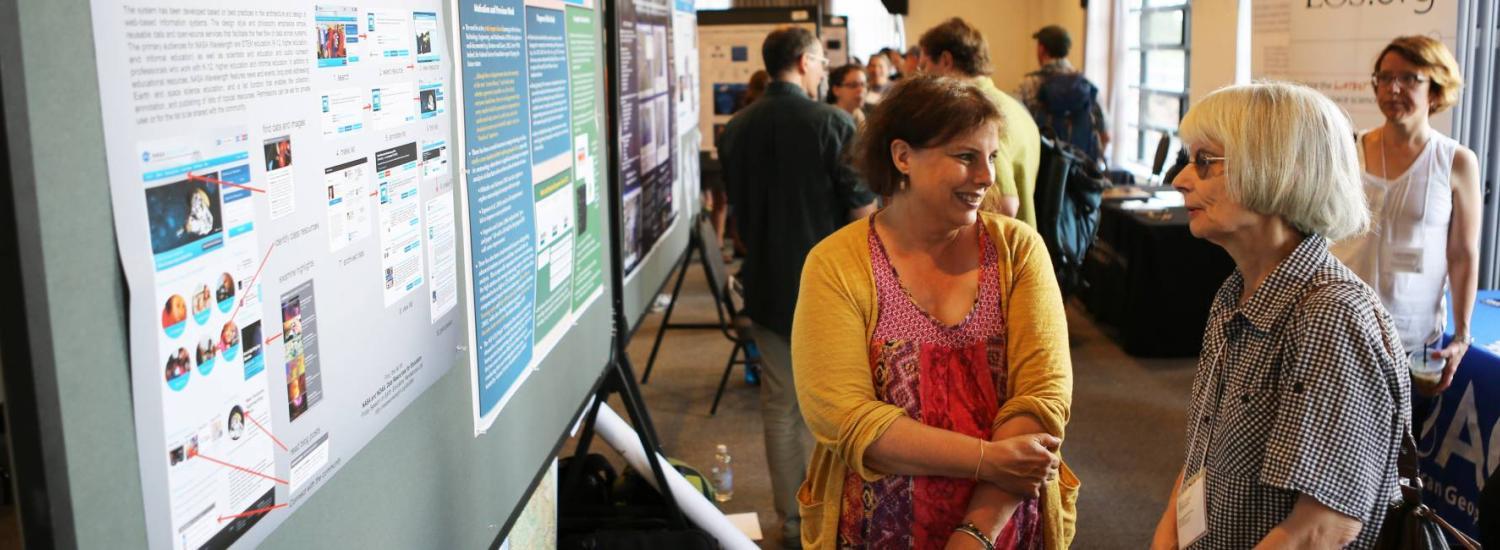White House Recognizes Women's Science Mentoring Group with Colorado Ties

The White House Office of Science and Technology Policy and the National Science Foundation have named the Earth Science Women's Network as one of 41 individuals or organizations honored with presidential awards for in the sciences. The awards recognize schools and organizations in most U.S. states and territories.
The Earth Science Women's Network, an international peer-mentoring group for women in the geosciences, works to create a supportive community for thousands of scientists. Scientists from the University of Colorado Boulder, Colorado State University, UNAVCO, and Colorado College lead the organization.
"We're deeply honored to get this recognition for our mentoring work," said Christine Wiedinmyer, one of the founders of the Earth Science Women’s Network and the Associate Director for Science at CU Boulder’s largest institute, the Cooperative Institute for Research in Environmental Sciences. ESWN was created to support women in the Earth Sciences, and we've clearly tapped into something powerful: our network supports thousands of scientists around the globe.
CSU Assistant Professor of Atmospheric Science Emily Fischer, a five-year board member of the Earth Science Women's Network, accepted the Presidential Award for Excellence in Science, Mathematics and Engineering Mentoring today, on behalf of the network. Melissa Burt, CSU research scientist in atmospheric science, serves as the network's vice president. Burt is also the Education and Diversity Manager for the Walter Scott, Jr. College of Engineering. Aisha Morris, who directs the Research Experiences in Solar Earth Sciences for Students program at UNAVCO, serves on the board, as does Rebecca Barnes, an assistant professor at Colorado College.
"The Earth Science Women's Network works to make sure the Earth sciences are acceptable and welcoming to all scientists, both male and female," Fischer said. "It's really wonderful that this organization, which includes many women, is being recognized in this way."
Award winners received a presidential citation and $10,000 from NSF, which manages the presidential awards programs on behalf of the White House. Fischer and others at the Washington, D.C. ceremony participated in discussions on STEM and STEM education priorities, along with representatives from several states.
The presidential awards for mentoring in STEM recognize the critical roles mentors play outside the traditional classroom in the academic and professional development of the future STEM workforce, according to the NSF.
Colleagues, administrators and students nominate individuals and organizations for exemplary mentoring sustained over a minimum of five years. The award has been given since 1995.
The Earth Science Women's Network was established in 2002 by a group of six women scientists. What started as simple email exchanges transformed into a center for establishing connections and scientific collaborations. Now, the network is a hub for connecting women across all facets of earth sciences.
The network model has proven so successful that it has inspired other efforts. Fischer and Burt started an NSF-funded effort called PROGRESS (Promoting Geoscience Research, Education and Success) that provides professional development and mentoring for undergraduate women in geosciences. They modeled their organization after the Earth Science Women's Network, which primarily serves graduate-level and higher scientists.